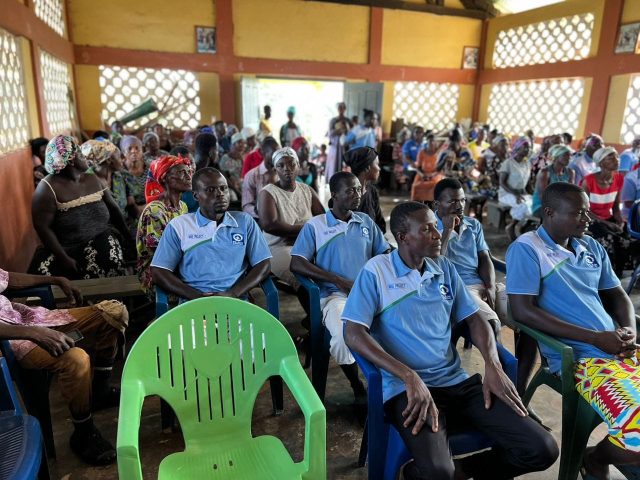Global Media Foundation (GLOMEF) has teamed up with Plan International Ghana in a remarkable initiative to bolster women’s participation in decision-making. With the generous support of Global Affairs Canada, this program is part of the Women’s Innovation for Sustainable Enterprise (WISE) Project and is set to empower women in 15 communities situated in the Sunyani Municipality within the Bono region.
The 15 selected communities that are benefiting from this empowering initiative are Yawmiri, Nkrakrom, Nkrankese, Yawhima, Mensahkrom, Watchman, Kwasifum, Nwonwasu, Kyeredua, Yawsae, Nsagobesa, Osofokrom, Kyerebogya, and Nwawasu.
The primary objective of this project, which spans over four years, is to strengthen women’s organizations and leadership within these communities. By amplifying women’s voices, the initiative aims to enhance their role in decision-making processes at various levels, including the household, community, region, and the nation as a whole.
These community advocacy dialogues orchestrated by Plan International Ghana serve as a crucial platform for educating community members, particularly men, on the myriad benefits of promoting women’s economic participation. Through these dialogues, women are empowered to take both individual and collective actions, further enhancing their role in society.
In addition to Plan International Ghana, this project is implemented in partnership with URBANET, WIDO, and several private sector stakeholders. Their collective effort is dedicated to enhancing the economic empowerment, well-being, and inclusive economic growth of women across Ghana.
These dialogues aim to deepen the knowledge of approximately 1,500 men and community members, fostering a better understanding of women’s rights and underscoring the importance of women’s involvement in decision-making at the household and community levels. The ultimate goal is to foster a more inclusive society where women play a vital role in shaping their communities.
Joycelyn Adii, the Bono Regional Director of the Department of Gender, emphasized the significance of women’s involvement in decision-making. “When women actively participate in decision-making within their households, they are more likely to prioritize education for their children, especially their daughters,” noted Mrs. Adii. This prioritization of education has the potential to break the cycle of illiteracy and empower the next generation.
Additionally, involving women in financial decisions within the family can enhance financial literacy and promote better financial planning. It also opens doors to various economic opportunities for women, who can now have a voice in investments, savings, and income-generating activities.
Furthermore, Mrs. Joycelyn Adii underscored the vital roles women often play at the community level, particularly in social and development initiatives. Empowering them to participate in community decision-making magnifies the impact of these initiatives, whether related to healthcare, education, or infrastructure.
Participating in decision-making at the household and community levels has the added benefit of nurturing leadership skills in women. This, in turn, boosts their self-confidence and equips them with valuable experiences that can be translated into leadership roles across various sectors.
Mrs. Joycelyn Adii emphasized that a society that includes women’s voices in decision-making is more inclusive and just.
“It ensures that the needs and concerns of all members, regardless of gender, are taken into account,” she stated. This, in turn, leads to policies and initiatives that benefit everyone, contributing to a more equitable and prosperous society.
In a democratic society like Ghana, the active participation of all citizens, regardless of gender, is fundamental. Women’s engagement in community decision-making reinforces democratic principles, accountability, and the values of equity.
Empowering women in decision-making at the household and community levels is not solely a matter of women’s rights; it’s a pathway to a more prosperous, equitable, and thriving nation. When women have a seat at the table, everyone stands to gain.












